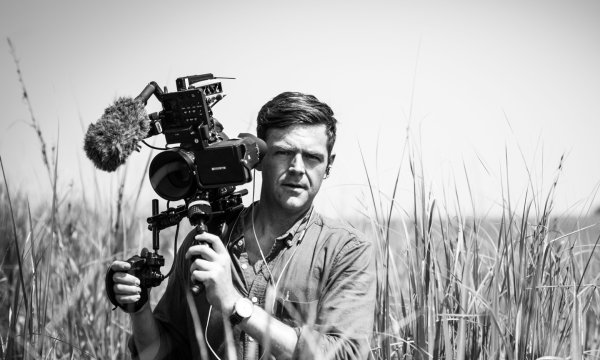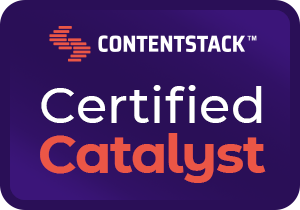J.J. Kelley is an Emmy-nominated filmmaker, director, adventurer and explorer. His work focuses on conservation, exploration and wildlife crime. Some of his most notable works are Gyre, a National Geographic documentary that explores the growing issue of ocean trash killing wildlife; and Warlords of Ivory, an Emmy-nominated film on how the ivory trade funds some of Africa's most notorious militias and terrorist groups. If this weren't impressive enough, he has paddled 1,400-miles from Alaska to Seattle in a homemade kayak and the full length of India's River Ganges. He has also hiked the Appalachian Trail and biked 1,300 miles along the Alaksa Pipeline. Blending his filmmaking with his desire for adventure has given his work a unique perspective that is both compelling and immersive. We had the good fortune to catch up with J.J. between adventures and hope you enjoy this awesome interview as much as we did.
Where were your born and raised?
I was born in Minneapolis and raised in Taylors Falls, Minnesota. A small town of about 1,000 people. I helped on a family farm where we raised goats, honey bees, chickens and made maple syrup.
When did you first get into journalism and filmmaking?
When I was 20, I did a year of college and then left. I was studying something that didn’t make me happy. I didn’t know what I wanted to do, but I knew I liked being outside. I drove a truck to Alaska and lived in a tent for the summer; there I got a job driving a tractor at an outfitter. They had a kayaking department where instructors took guests deep into the wild; I was in love! I slowly made my way onto the kayaking department as in instructor. This kicked off many Alaska adventures, some a few days long others months long. One day I thought, you know there are some wild stories you encounter on these big trips, I bet people would find the characters you meet and places you see interesting. So I picked up a video camera, got some advice and made my first film. Touring the film at festivals, I caught the attention of National Geographic; they purchased 7-min of my video for a TV show. Most importantly, I was able to secure an internship position at National Geographic. This lead to me move to Washington, D.C. working out of the National Geographic headquarters. I’ve been learning to make and making films ever sense.


From poachers in Africa to the drug war in the Philippines, you've covered some difficult and sensitive topics. As the artist behind the lens it's your job not to look away. How do you push forward when faced with such emotional subject matter?
One of the most tragic moments I’ve witnessed was the suicide of a Maasai man in rural Kenya. There were no other journalists there, not even another person who spoke English. Through a series of chaotic events I found myself holding a camera as a man accused of murder was surrounded by angry Maasai warriors. The accused didn’t want to face their wrath so took his life right in front of them and me. I’ll leave out the details, but I’ll never forget the courage the lens gave me. I felt like I was there reporting on something greater; there was no time to be scared for myself, I had a job to do. Since then I’ve filmed many events that would normally make me sick to my stomach or pee my pants, but having that sense of purpose gives me a courage that’s almost superhuman.



You're also an avid adventurer and have found ways to blend that into much of your work. Could you tell us about a time when you got in over your head?
I had the opportunity to work in Antarctica for 5 months. For a full month I was to deploy onto an ice shelf the size of France, and for all I knew our small party of 15 would be the only people there. The entire area was riddled with cravases, but using a sonar device we were able to prove routes where we could travel. One day I went out with a snowmobile to film on my own. A crazy thing about Antarctica is that though the continent is covered with snow and ice, it’s a desert--it rarely snows. It’s just so cold that when it does snow, the snow rarely melts. With all this dry snow blanketing the mile thick slab of ice I stood on, when a 50-mph wind storm picked up, I could hardly see my outstretched hand. My world view was reduced to inches. The windchill was now close to -50F and I needed to get back to the shelter of our tents. I had a satellite phone and a GPS, but I was about 30-minutes away from help, too long to stand and wait. My heart was racing out of my chest. I did my best to draw on all the courage I could gather, took a deep breath and said you got this dude. I knew if I didn’t freak out, staying confident and calm, that I could navigate back. I’d done it before without issues, now the only difference was the pressure of frostbite, getting lost or worse. Staying calm and confident worked. I remember almost crashing into the camp when I intersected with my home course, the snow was so all consuming I almost drove right into a tent.


If you could have lunch with another person alive or dead, who would that be and why? What do you think you would discuss?
This is a hard question for me. I think my answer would change almost weekly depending on what’s inspiring me. Today I’d say Joan of Arc. I’m compelled by people who exhibit great courage, strength and leadership. Joan was fearless and lived her life by her ideals. She poured everything into what she believed was just.
What do you feel is the biggest overlooked issue with respect to the environment you wish would get more attention right now?
I just finished filming a story with New Jersey Senator Cory Booker. He’s fighting environmental racism, which is a subject that was new to me before starting work on this story. We witnessed people living in the United States with straight pipes that literally run from their toilet into their back yards, where the kid’s aren't able to play. We saw case after case of people living next to environmental disasters, like skyrocketing cancer rates in a stretch of Louisiana with over 150 chemical factories built on freed slave land. It’s described as the new Jim Crow. The Senator just announced a bill to address the issue. It’s been an emotional process learning more about an issue I recently didn’t know anything about.


If you could give three pieces of advice to an aspiring journalist or filmmaker in college right now what would they be?
Don’t let excuses keep you from telling your story. Too often I hear from aspiring filmmakers who say, as soon as I can get this camera or as soon as someone gives me money to make my idea, I’ll go do it. You’ll never get there if you rely on other people for your strength, grab a camera, tell a story, watch what you shoot to celebrate the successes and learn from from the mistakes.
Stay fresh. Continue to learn about the latest gear, the most innovative shooting technique and other sides of storytelling that you’ve never tried. When we get too comfortable our stories suffer, we get lazy and use the same techniques again and again. Take on something that makes your heart race, something that freaks you out, try to get comfortable in that space, and when you do, try something new.
Apprentice. My successes in filmmaking are the result of an unpaid internship where I could learn from people who were much more talented than I was. I had to work an extra job to pay the bills, but it was worth it for the skills I gained. Looking back, I was so clueless then. I often take gigs that don’t pay as well as I’d like when they come with the opportunity to learn from someone I admire. To be a great filmmaker you don’t have to go to college for filmmaking or journalism, there are extremely talented people out in the world telling great stories and if they offer up a chance to ride along and show you a few things, go!



What's next for you? Any lofty goals that you are pursuing right now?
Every 5 years I start to get restless in my career. I adore traveling the world and telling stories from near and afar. However, how I tell those stories can get a little repetitive. After being a producer for a few years, I decided to shoot more as a director of photography, then an editor. Now, I’m starting to do more work in front of the camera. I just hosted a new show for The Travel Channel. For me it’s about loving what I’m doing, with that comes passion. The most profound works for me are the ones inspired by passion.
What comes first, the adventure or the story? For instance when you paddled the Ganges was that adventure something you always wanted to do? Or was shooting a story about the Ganges the goal and paddling just an interesting way to immerse yourself in the story?
For me storytelling is a progression that evolves as you gather life experiences. When I was younger on a small farm in Minnesota the idea of taking a rowboat down the most polluted river in the world, in the most populated country in the world, was a thought I would never naturally stumble upon. I bet I didn’t know more than 5 things about India then, nor was it a place I ever thought about going. Then I knew the Minnesota woods, this lead me to dream up taking a super long walk in the woods, which lead me east where I took 5-months to hike from Maine to Georgia on the Appalachian Trail. Out east I was exposed to people who’d traveled further, outside of the U.S.. This lead me to start traveling overseas where I experienced intense pollution, people living in poverty who are surrounded by trash and industrial runoff. Then I thought, well instead of doing a long trip in a pristine wilderness, what if I went down the most polluted river on earth. A quick search lead me to the Ganges River in India and 6 months later I was in India. I bring my cameras to places that compel me with the hope that what I make might inspire others who would otherwise never see such exotic places; like the me who lived on a farm in Minnesota.


Where can people find you or get in touch?





